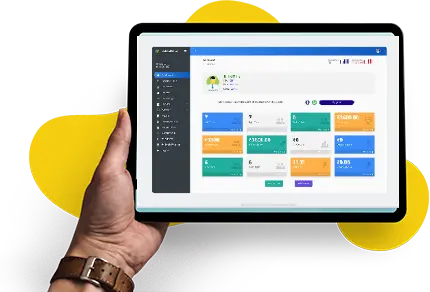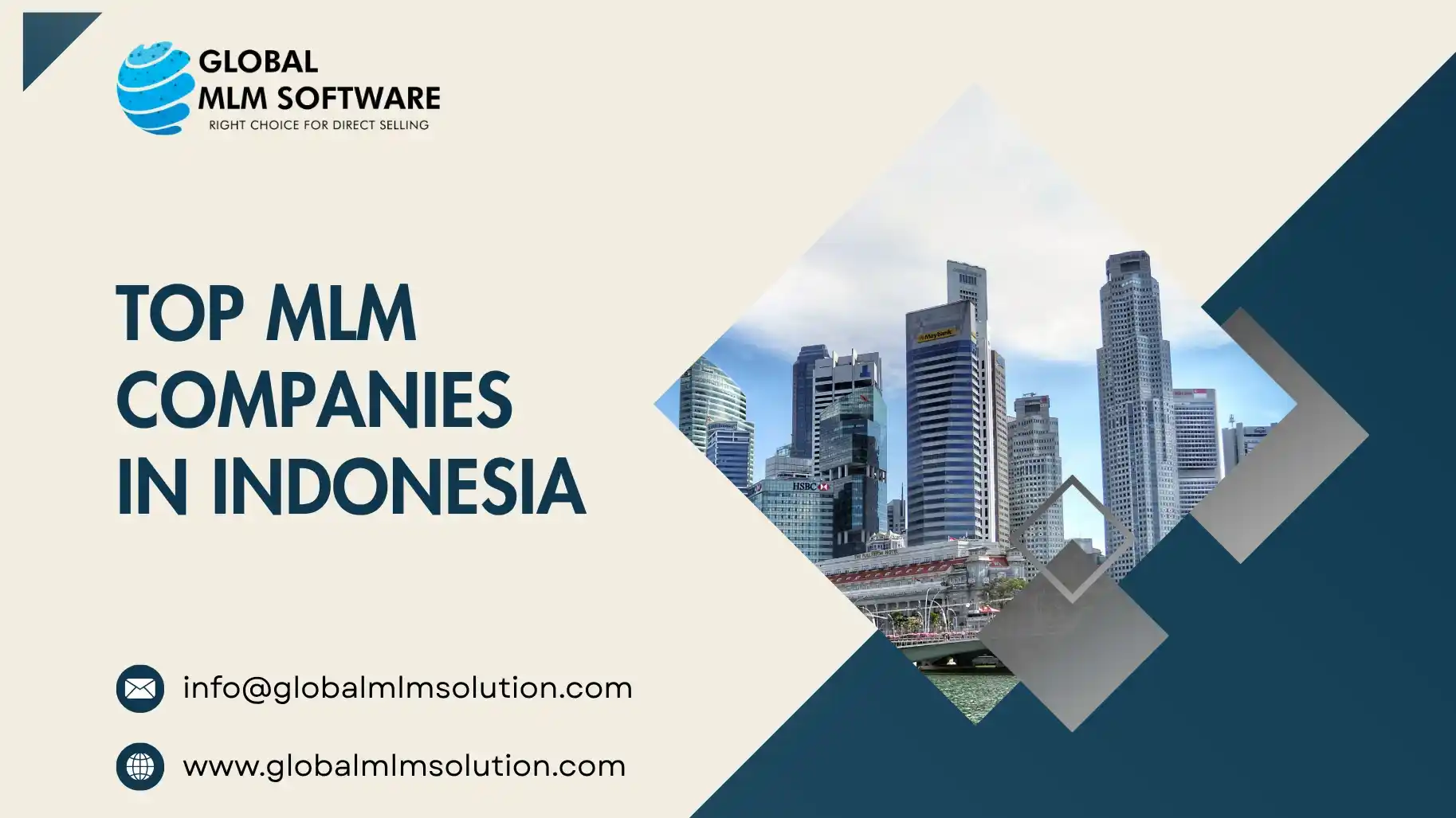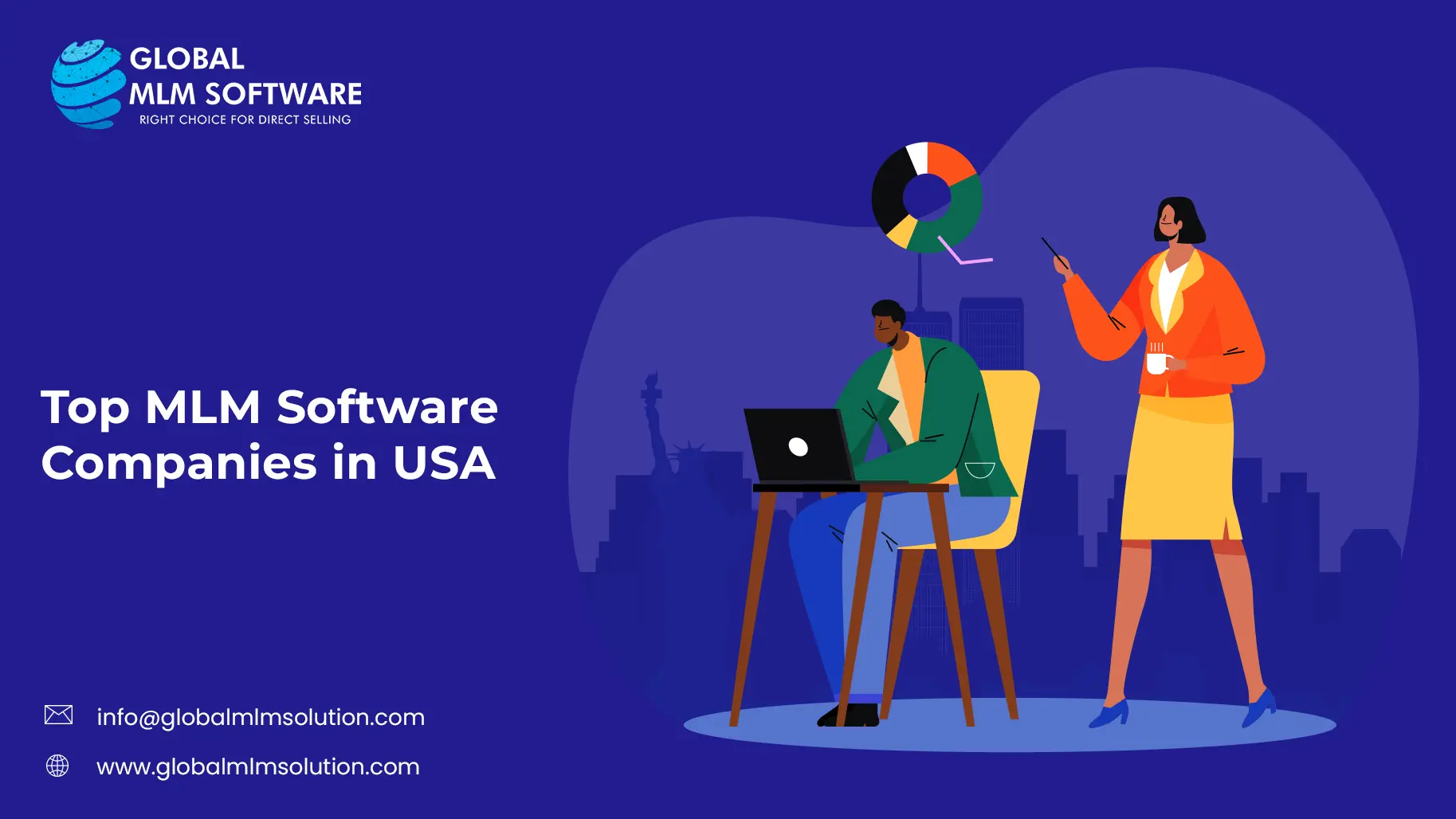If you're planning to launch an e-commerce MLM company, then it is crucial that you have a good understanding of how today's e-commerce market works.
The direct selling industry has evolved far beyond face-to-face product demos. The modern e-commerce MLM brands are blending online convenience with human-driven sales to scale faster and compete with other companies globally.
We've curated a list of the top-performing e-commerce MLM companies that have successfully leveraged this model to generate billions in revenue. From legacy brands like Amway and Herbalife to newer companies like doTERRA, these companies have built e-commerce systems that are worth analyzing. The MLM companies added below act as examples offering valuable insight into how to structure, scale, and sustain your business.
This Article Contains:
Quick Facts About the Leading E-commerce Network Marketing Companies
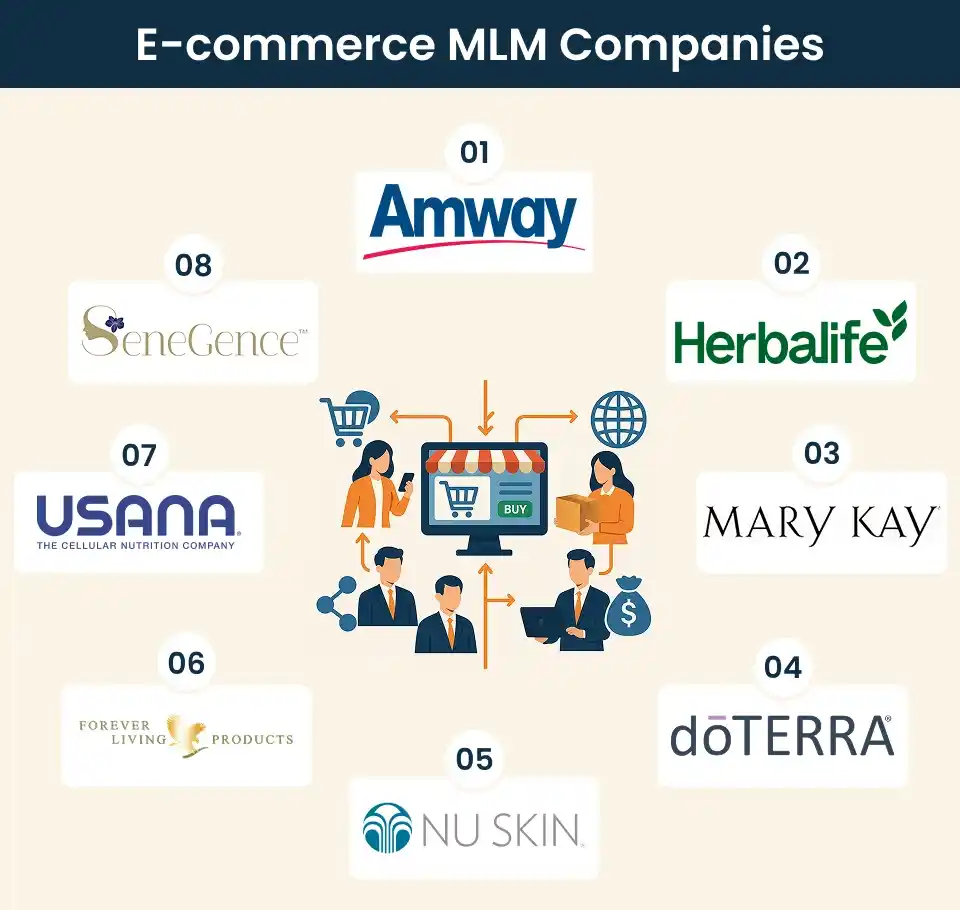
| S.No | Company Name | Founder | CEO | Headquarters | Year Founded | Company Size | Revenue |
|---|---|---|---|---|---|---|---|
| 1 | Amway | Jay Van Andel and Richard DeVos | Michael Nelson | Ada, Michigan, USA | 1959 | 13,000 employees | $7.4 billion |
| 2 | Herbalife | Mark R. Hughes | Stephan Gratziani | Los Angeles, CA, USA | 1980 | 5,001-10,000 employees | $5 billion |
| 3 | Mary Kay | Mary Kay Ash | Ryan Rogers | Addison, Texas, USA | 1963 | 1,001-5,000 employees | $2.4 billion |
| 4 | doTERRA | David Stirling, Mark A. Wolfert, Corey B. Lindley, Dr. David K. Hill, Emily Wright, Gregory P. Cook, Robert J. Young | Kirk Jowers | Pleasant Grove, Utah, USA | 2008 | 1,001-5,000 employees | $2 billion |
| 5 | Nu Skin | Sandie N. Tillotson, Blake Roney, Steven J. Lund | Ryan Napierski | Provo, Utah, USA | 1984 | 1,001-5,000 employees | $1.73 billion |
| 6 | Forever Living Products | Rex Maughan | Gregg Maughan | Arizona, USA | 1978 | 201-500 employees | $1.7 billion |
| 7 | USANA | Myron Wentz | Jim Brown | Salt Lake City, Utah, USA | 1992 | 501-1,000 employees | $0.855 billion |
| 8 | SeneGence | Joni Rogers-Kante | Joni Rogers-Kante | Foothill Ranch, Lake Forest, California | 1999 | 51-200 employees | $0.8 billion |
Disclaimer : This table's information is derived from 2024 data and is subject to change.
Explore the Top E-commerce MLM Companies in Detail
We’ve curated this list of top e-commerce MLM companies after a careful evaluation of multiple key factors. This includes each company’s annual revenue, product range, and how optimized and user-friendly their e-commerce platforms are.
We also considered global reach, logistics infrastructure, and how well their digital systems support distributors and customers alike. The goal: to highlight companies that combine scalability with seamless online shopping experiences.
1. Amway
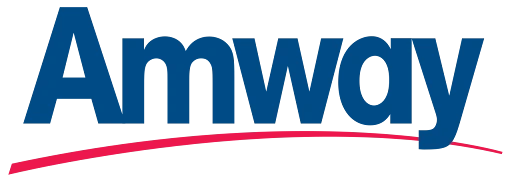
Amway is one of the oldest brands and continues to be among the leading MLM companies globally by successfully adopting new trends. What sets Amway apart is its ability to anticipate and adapt to changing market trends. At a time when e-commerce was still in its infancy, Amway launched Quixtar in 1999, bringing its North American business online.
Quixtar replaced Amway’s operational model entirely and introduced a new way of selling products. Unlike the older approach, where IBOs would take product orders and deliver them, Quixtar has made it more convenient by allowing customers to place orders online and have them delivered right to their doors.
It thoughtfully considered distributors by adding a convenient option for customers to include their IBO referral code, which allows commissions to be shared with the IBOs. Quixtar also gave IBOs the option to create their own websites focused on various categories, such as health and supplements, and earn commissions.
In mid-2007, Quixtar started phasing out and was being transitioned to Amway. This transition was purely in terms of branding, and the core features of its e-commerce website remained the same (till today).
Amway didn’t stop there; with time, it analyzed modern consumer behavior and provided innovative solutions through advanced digital tools. Today, it offers the Amway™ Wellbeing+ App, which supports users with daily logging and content for holistic health programs.
There’s also the Artistry Virtual Beauty App, which offers personalized skin care analysis and virtual makeup try-ons; features that enhance the customer experience and build brand trust.
For entrepreneurs launching an e-commerce MLM, Amway’s success highlights a key lesson: monitor market shifts, embrace technology, and provide distributors with the digital tools they need.
2. Herbalife

Herbalife, founded in 1980, has established a global reputation in the nutrition and wellness sector through its extensive network of independent distributors. Before launching its own e-commerce website, Herbalife allowed its distributors to sell products by creating individual websites.
However, due to regulatory scrutiny in 2014, they instructed their distributors to cease selling products online through their websites. After this decision, the brand worked on bringing its product online through a single company website that both distributors and customers can use. Finally, in 2015, they launched their online store for U.S. customers.
The brand’s website initially listed Herbalife’s top-selling products, such as Formula 1 Cookies and Cream flavor shake powder. Each purchase was connected to a registered distributor, preserving the brand’s foundation of personal coaching, weight loss support, and human connection.
Fast forward to today, the Herbalife website features all its products online. Through their e-commerce platform, they also share resources such as healthy recipes, wellness tips, and more to help customers follow a healthy lifestyle easily.
Additionally, the brand simplified processes for distributors, allowing them to create their own storefronts hosted on the Herbalife platform. Importantly, the power remains with Herbalife, allowing them to monitor their distributors and ensure ongoing compliance.
Therefore, independent distributors can sell products personally and through online stores. Opting for the online method eliminates the need for inventory, with the brand shipping orders directly from its distribution centers.
Nonetheless, it allows distributors the choice to fulfill orders from their own inventory. Consequently, Herbalife offers comprehensive flexibility, enabling distributors to operate in a manner that suits them best.
3. Mary Kay
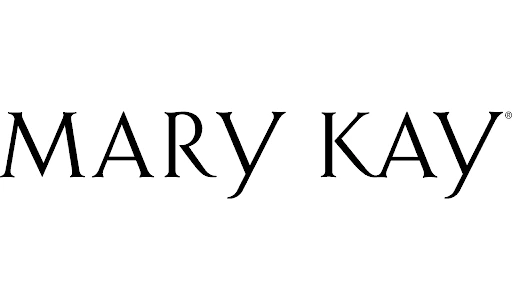
Mary Kay, one of the world’s leading beauty-focused MLM companies, has consistently embraced the power of e-commerce and digital transformation to stay ahead. Founded in 1963, it began integrating digital tools into its business model well before most beauty direct-selling companies in the world considered making the shift.
In 2001, Mary Kay Inc. received the Direct Selling Association’s “Industry Innovation Award” for its Personal Website program, a first-of-its-kind initiative that allowed Independent Beauty Consultants to operate their respective websites. This pioneering step gave consultants an online storefront at a time when e-commerce was still evolving.
Two decades later, Mary Kay continued to innovate. In 2021, the company launched the Mary Kay® App, a mobile platform that lets users browse products, build personalized routines, connect with consultants, and receive beauty recommendations. It also allows customers to order products directly from their consultant’s digital store, blending convenience with personal service.
That same year, Mary Kay introduced Suite 13, a virtual reality experience that showcases product portfolios and the brand's history in an immersive, interactive space, further enhancing its digital presence.
Together, these efforts position Mary Kay as a standout example of how beauty MLMs can thrive by merging personal consultation with e-commerce scalability and digital precision.
4. doTERRA
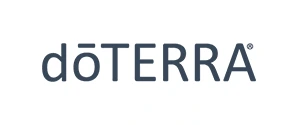
doTERRA was launched in 2008 when online shopping was gaining significant momentum. It quickly positioned itself as one of the leading essential oil MLM companies globally, using an online and distributor-centric model.
From the outset, the company invested in building a scalable and user-friendly e-commerce infrastructure to support both customers and distributors. Through doTERRA’s official website, users can browse and purchase a wide range of products, not just essential oils.
The platform offers categories such as personal care, sun care, supplements, kits & collections, diffusers & accessories, and even FSA/HSA-eligible products. Its customers can shop either at retail pricing or enroll as wholesale members to receive a 25% discount by paying a small annual fee.
doTERRA also makes it easy for buyers to connect with independent distributors, called Wellness Advocates, through its website. This preserves the brand’s person-to-person support model while allowing modern, online convenience to both customers and distributors.
For distributors, the same e-commerce platform provides access to product ordering, educational, and product training material. By combining a vast product catalog, seamless digital access, and personalized distributor support, doTERRA continues to balance digitalization and direct sales requirements.
5. Nu Skin
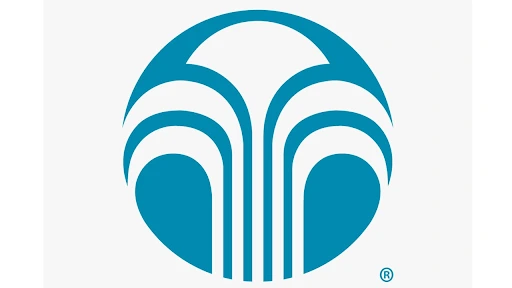
Nu Skin is another pre-digitalization period brand, founded in 1984, that became one of the leading e-commerce MLM companies because of its forward-thinking approach. While traditionally, it's a person-to-person direct-selling company, it began transforming its selling model in 2015 to better align with changing consumer expectations.
By the end of the 2015 financial year, its online sales had already reached 5%, and by 2017, they had increased to 40%. As of 2020, more than 90% of Nu Skin’s global revenue flowed from online transactions, a testament to its aggressive digital transition.
Nu Skin operates a customer-centric e-commerce platform where users can browse and purchase products, including skincare, beauty devices like the ageLOC® LumiSpa® iO, and nutritional supplements. Additionally, it provides Personal eCommerce Portals to its distributors to manage their customer base, take orders, and offer personalized guidance.
6. Forever Living Products

Forever Living has been operating through its independent sellers since its inception in 1978. However, with a change in how customers purchase new products, they integrated the “Shop” functionality on their main website.
This is one of the top aloe vera MLM companies that offers a wide range of products to its online customers. The product catalog ranges from fine fragrances and vegan products to nutritional and weight management offerings.
Forever Living also provides its distributors, known as Forever Business Owners (FBOs), with personal e-commerce websites, allowing them to sell products and earn a commission. It offers its FBO an option to purchase a pre-approved FBO website through the FLP360° platform. FBOs can find FLP360° by logging in to their account on the primary brand website.
The benefit of using these pre-approved websites for FBOs is that they adhere to the brand guidelines and provide direct links to the main shopping platform. Therefore, there is no hassle of creating a website on its own. As an entrepreneur, you can try to incorporate this in your e-commerce MLM company to get an edge over competitors.
7. USANA
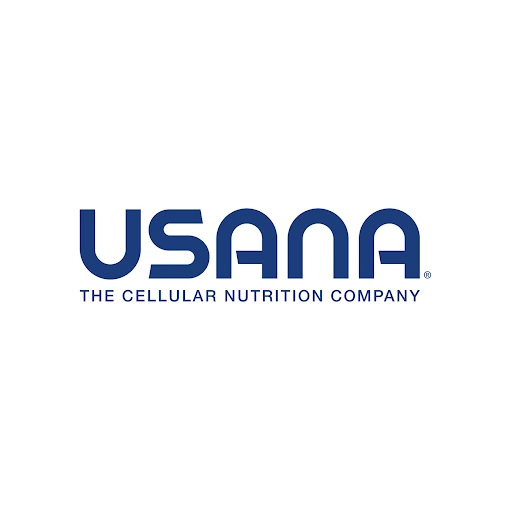
When USANA was launched in 1992, there were no e-commerce MLM companies around, as the industry was still cementing its foundation. USANA was established through its direct-selling model and later incorporated the growing online selling trend. It integrated the direct-selling features into its website, creating a unique model that offers three different ways to earn:
Preferred Customer : Enrolling as a preferred customer gives 10% off on every product.
Affiliate : People can obtain their unique affiliate links, which, when used by another person to make a purchase, provide a 15% commission to the referrer.
Associate : To become an associate, a person must be referred by an existing USANA associate. Upon successful enrollment, they receive their personalized USANA website to sell products.
Additionally, the personalized website provided to a USANA associate includes back-office support.
8. SeneGence

SeneGence entered the market in 1999 when only one e-commerce MLM company, Amway, had its online platform ready. Additionally, the dot-com era was just beginning, and due to easy competition, SeneGence was able to capture the market early.
Famous for its long-lasting, smudge-proof liquid lip color, LipSense®, SeneGence kept integrating new online selling features over a period of years. Today, it sells a wide variety of products, and all are available to purchase through its e-commerce website.
Both customers as well as distributors can purchase products from the brand’s website. However, for distributors, the benefits are greater as they get 40–50% off on each product, which they can resell and earn a margin as an MLM commission.
SeneGence also provides free personal distributor websites to help them sell products easily. Along with websites, the brand also provides digital marketing tools so the distributors can effectively market their business online.
Conclusion
Each of these e-commerce MLM companies serves as a case study of how legacy and modern direct-selling brands can thrive in today's digitally driven world. While the MLM model is built on personal interaction and relationship-based selling, these examples demonstrate that it’s entirely possible to merge that foundation with scalable, online platforms successfully.
Additionally, if you're planning to launch an MLM brand today, you’ll need to offer your distributors more than just a checkout page. Think about adding social selling tools, mobile apps, and customizable digital storefronts.
And if you want to go a step further, take inspiration from companies like Mary Kay that introduced virtual reality stores, giving both distributors and customers an immersive brand experience.
FAQs
1. What is MLM in e-commerce?
E-commerce MLM refers to a business model where a company sells products or services through a network of independent distributors as well as through its website.
2. Does e-commerce MLM involve distributors?
Yes, the e-commerce MLM model involves distributors. Most companies provide their distributors with a personalized e-commerce website through which they sell products to customers.
Disclaimer: Global MLM Software do not endorse any companies or products mentioned in this article. The content is derived from publicly available resources and does not favor any specific organizations, individuals or products.


